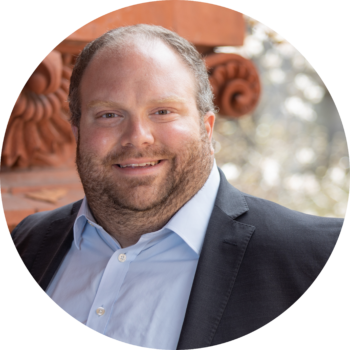
Dr. Benjamin L. Schmitt is a Senior Fellow at the University of Pennsylvania, where he holds a joint academic appointment between the Department of Physics and Astronomy and the Kleinman Center for Energy Policy. At Penn, Dr. Schmitt focuses on the project development and field deployment of the Simons Observatory – a new set of experimental cosmology telescopes and renewable energy support infrastructure under construction at a high-altitude site in the Atacama Desert of Northern Chile.
In his joint role at Penn, Dr. Schmitt also pursues research and teaching related to European energy security, Transatlantic national security issues, and modern sanctions and export controls policy regimes. Previously, Benjamin was a Research Associate and Project Development Scientist at the Harvard-Smithsonian Center for Astrophysics where he supported the technical design, project management, and deployment of novel instrumentation and infrastructure that will comprise next-generation experimental cosmology telescopes. Dr. Schmitt is a Term Member of the Council on Foreign Relations. He is the co-founder of the Duke Space Diplomacy Lab, where he is also a fellow of the Duke University “Rethinking Diplomacy” program. Dr. Schmitt is also a Senior Fellow for Democratic Resilience at the Center for European Policy Analysis (CEPA), where he focuses on Transatlantic energy and national security analysis. Dr. Schmitt has also served as European Energy Security Advisor at the U.S. Department of State. Benjamin has also been called to testify as an expert witness on Transatlantic energy and national security issues before the U.S. Congress, the Canadian Parliament, and Verkhovna Rada of Ukraine. Before entering government, Dr. Schmitt served as a NASA Space Technology Research Fellow while pursuing doctoral research at the University of Pennsylvania.
Dr. Schmitt received both M.A. and Ph.D. degrees in experimental physics from the University of Pennsylvania. Schmitt has also previously served as a U.S. Fulbright Research Fellow to the Max-Planck-Institute for Nuclear Physics in Heidelberg, Germany.
